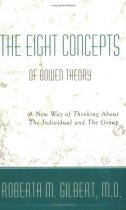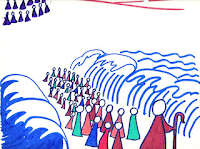Three years ago, a
little boy and his grandmother came to see Santa at Mayfair Mall in Wisconsin.
The child climbed up on his lap, holding a picture of a little girl. "Who
is this?" asked Santa, smiling. "Your friend? Your sister?"
"Yes, Santa," he replied. "My sister,
Sarah, who is very sick," he said sadly.
Santa glanced over at the grandmother who was
waiting nearby, and saw her dabbing her eyes with a tissue. "She wanted to come with me to see you,
oh, so very much, Santa!" the child exclaimed. "She misses you,"
he added softly.
Santa tried to be cheerful and encouraged a smile to
the boy's face, asking him what he wanted Santa to bring him for Christmas.
When they finished their visit, the Grandmother came over to help the child off
his lap, and started to say something to Santa, but halted. "What is
it?" Santa asked warmly.
“Well, I know it's really too much to ask you,
Santa, but..." the old woman began, shooing her grandson over to one of
Santa's elves to collect the little gift which Santa gave all his young
visitors. “The girl in the photograph
... my granddaughter .. well, you see ... she has leukemia and isn't expected
to make it even through the holidays," she said through tear-filled eyes.
"Is there any way, Santa ... any possible way that you could come see
Sarah? That's all she's asked for, for Christmas, is to see Santa."
Santa blinked and swallowed hard and told the woman
to leave information with his elves as to where Sarah was, and he would see what he could do.
Santa thought of little else the rest of that
afternoon. He knew what he had to do. "What if it were MY child lying in
that hospital bed, dying," he thought with a sinking heart, "this is
the least I can do." When Santa finished visiting with all the boys and
girls that evening, he retrieved from his helper the name of the hospital where
Sarah was staying. He asked the assistant location manager how to get to
Children's Hospital.
"Why?" Rick asked, with a puzzled look on
his face.
Santa relayed to him the conversation with Sarah's
grandmother earlier that day. "C'mon .... I'll take you there," Rick
said softly.
Rick drove them to the hospital and came inside with
Santa. They found out which room Sarah was in. A pale Rick said he would wait
out in the hall.
Santa quietly peeked into the room through the
half-closed door and saw little Sarah on the bed. The room was full of what
appeared to be her family; there was the Grandmother and the girl's brother he
had met earlier that day. A woman whom he guessed was Sarah's mother stood by
the bed, gently pushing Sarah's thin hair off her forehead. And another woman
who he discovered later was Sarah's aunt, sat in a chair near the bed with
weary, sad look on her face. They were talking quietly, and Santa could sense
the warmth and closeness of the family, and their love and concern for Sarah.
Taking a deep breath, and forcing a smile on his
face, Santa entered the room, bellowing a hearty, "Ho, ho, ho!"
"Santa!" shrieked little Sarah weakly, as
she tried to escape her bed to run to him, IV tubes in tact. Santa rushed to
her side and gave her a warm hug. A child the tender age of his own son -- 9
years old -- gazed up at him with wonder and excitement. Her skin was pale and
her short tresses bore telltale bald patches from the effects of chemotherapy.
But all he saw when he looked at her was a pair of huge, blue eyes. His heart
melted, and he had to force himself to choke back tears. Though his eyes were
riveted upon Sarah's face, he could hear the gasps and quiet sobbing of the
women in the room. As he and Sarah began talking, the family crept quietly to
the bedside
one by one, squeezing Santa's shoulder or his hand gratefully, whispering
"thank you" as they gazed sincerely at him with shining eyes.
Santa
and Sarah talked and talked, and she told him excitedly all the toys she wanted
for Christmas, assuring him she'd been a very good girl that year. As their
time together dwindled, Santa felt led in his spirit to pray for Sarah, and
asked for permission from the girl's mother. She nodded in agreement and the
entire family circled around Sarah's bed, holding hands. Santa
looked intensely at Sarah and asked her if she believed in angels.
"Oh, yes, Santa ... I do!" she exclaimed.
“Well, I'm going to ask that angels watch over you,”
he said. Laying one hand on the child's head, Santa closed his eyes and prayed.
He asked that God touch little Sarah, and heal her body from this disease. He asked that
angels minister to her, watch and keep her. And when he finished praying, still
with eyes closed, he started singing softly, "Silent Night, Holy Night
.... all is calm, all is bright." The family joined in, still holding
hands, smiling at Sarah, and crying tears of hope, tears of joy for this
moment, as Sarah beamed at them all. When the song ended, Santa sat on the side
of the bed again and held Sarah's frail, small hands in his own. "Now,
Sarah," he said authoritatively, "you have a job to do, and that is
to concentrate on getting well. I want you to have fun playing with your friends
this summer, and I expect to see you at my house at Mayfair Mall this time next
year!" He knew it was risky proclaiming that, to this little girl who had
terminal cancer, but he "had" to. He had to give her the greatest
gift he could -- not dolls or games or toys -- but the gift of HOPE.
"Yes, Santa!" Sarah exclaimed, her eyes
bright.
He leaned down and kissed her on the forehead and
left the room. Out in the hall, the minute Santa's eyes met Rick's, a look
passed between them and they wept unashamed. Sarah's mother and grandmother
slipped out of the room quickly and rushed to Santa's side to thank him.
"My only child is the same age as Sarah,"
he explained quietly. "This is the least I could do." They nodded
with understanding and hugged him.
One year later, Santa Mark was again back on the set
in Milwaukee for his six-week, seasonal job which he so loves to do. Several
weeks went by and then one day a child came up to sit on his lap. "Hi,
Santa! Remember me?!"
"Of course, I do," Santa proclaimed (as he
always does), smiling down at her. After
all, the secret to being a "good" Santa is to always make each child
feel as if they are the "only" child in the world at that moment.
"You came to see me in the hospital last
year!" Santa's jaw dropped.
Tears immediately sprang in his eyes, and he grabbed this little
miracle and held her to his chest. "Sarah!" he exclaimed. He scarcely
recognized her, for her hair was long and silky and her cheeks were rosy
-- much different from the little girl he had visited just a year before. He
looked over and saw Sarah's mother and grandmother in the sidelines smiling and
waving and wiping their eyes.
That was the best Christmas ever for Santa Claus. He
had witnessed - and been blessed to be instrumental in bringing about – this
miracle of hope. This precious little child was healed. Cancer-free. Alive and
well. He silently looked up to Heaven and humbly whispered, "Thank you,
Father.









